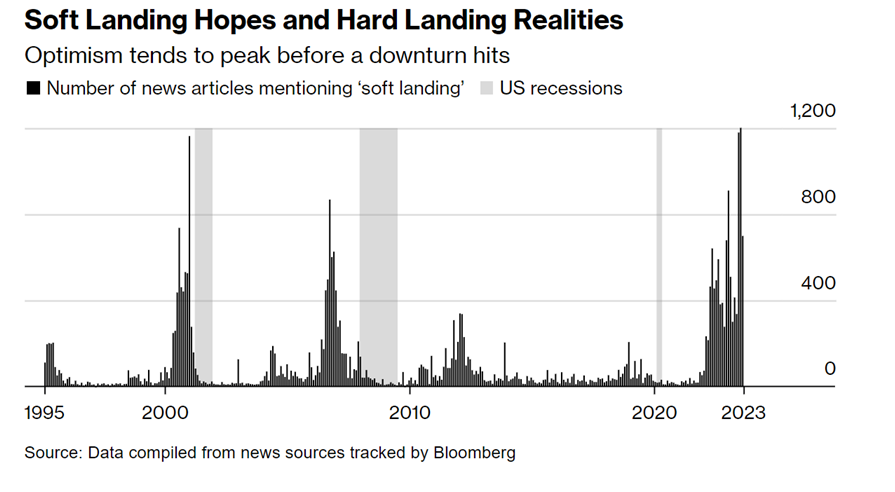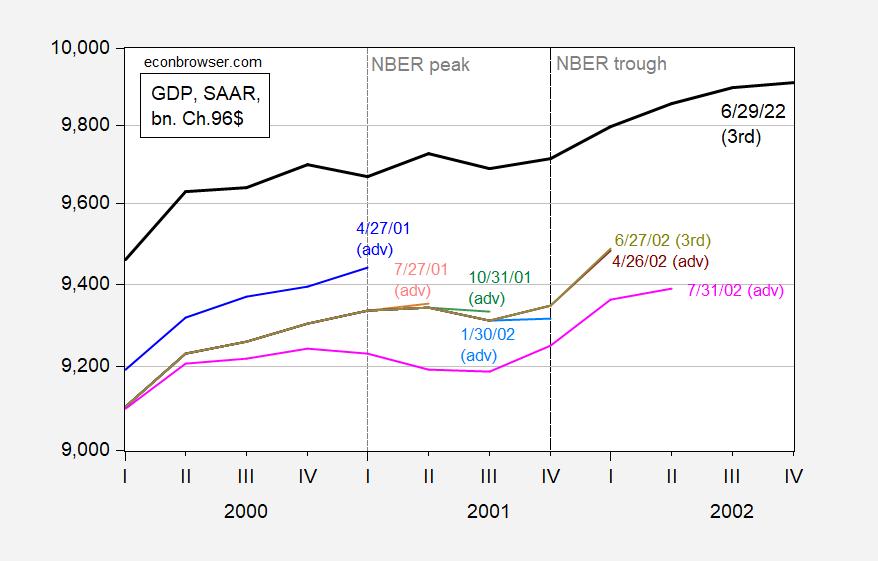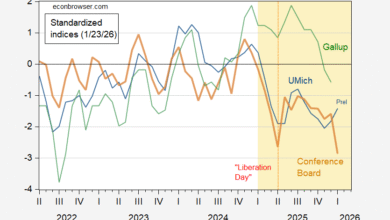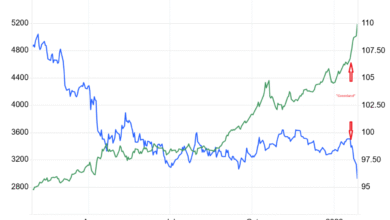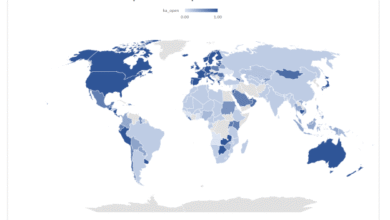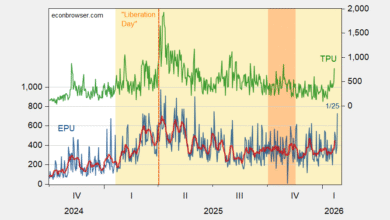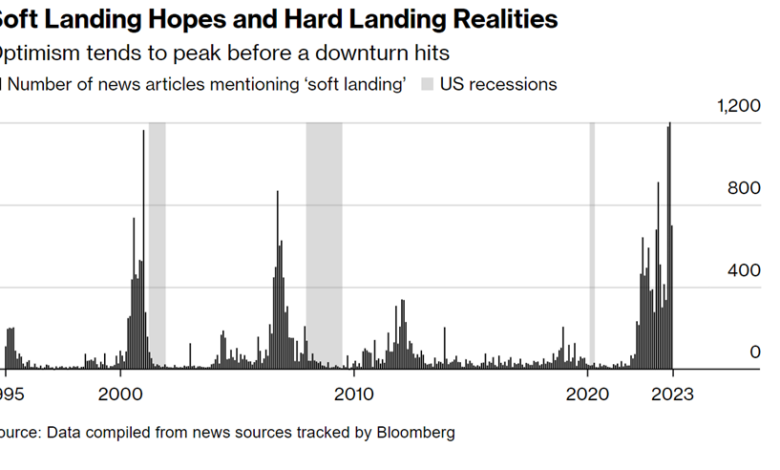
In early 2001 (April or May) I was on staff at CEA, and recall a conversation where I was assured there’d be no recession, given the latest data available. So, with all the data I’ve recapped, remember, the data will be revised (and GDP in particular will be revised, over and over again).
As Wang and Orlick point out, before each of the most recent recessions, a considerable number or analysts think we have dodged a bullet.
Source: Wang, Orlick, Bloomberg, Oct 1, 2023.
Here’s the evolution of estimates of GDP contours around the 2001 recession (I’m self-plagiarizing from this post).
Figure 1: GDP in billions Ch. 1996$ SAAR. NBER defined peak and trough dates at dashed lines. 6/29/22 GDP calculated dividing nominal GDP by GDP deflator rescaled to 1996=100. Source: BEA via ALFRED, NBER, and author’s calculations.
The first reading of GDP at then end of April 2001 allowed people to breathe a sigh of relief – q/q annualized growth was around 2%:
Figure 2: Quarter-on-quarter annualized real GDP growth. NBER defined peak and trough dates at dashed lines. Source: BEA via ALFRED, NBER, and author’s calculations.
That positive reading remained true through the second and third releases. The advance reading for 2001Q2 was also positive. This remained true through the second and third releases, and only in Q3 did the advance reading go negative, and remain so. However, the advance Q4 reading (1/30/2002) was positive — so there was no two-consecutive-quarter string of negative readings.
Only with the advance 2002Q2 release — incorporating the annual revision — did we get consecutive negative readings, in this case three quarters, starting Q1 running through Q3. The annual revisions adjust the preceding 5 years of GDP estimates (see here).
However, every five years, the BEA undertakes comprehensive revisions, incorporating the latest data. This once again changed the contours of GDP – as shown in Figure 1 and Figure 2. As the most recent series show, there are no consecutive quarters of negative growth. And yet, the NBER declared a recession running from (peak-to-trough) March 2001-November 2001, 2001Q-2001Q4 (recession announcement November 26, 2001, expansion announcement, July 17, 2003).
So, it’ll be a while before I say with confidence that there’s no recession, on the basis of GDP at least. Other indicators may give an all clear much sooner. (Of course, this also means I’ll be reluctant — too reluctant for some — to declare a recession underway).
On the other hand, I still think it highly unlikely there was a recession of 2022H1.
Source link

